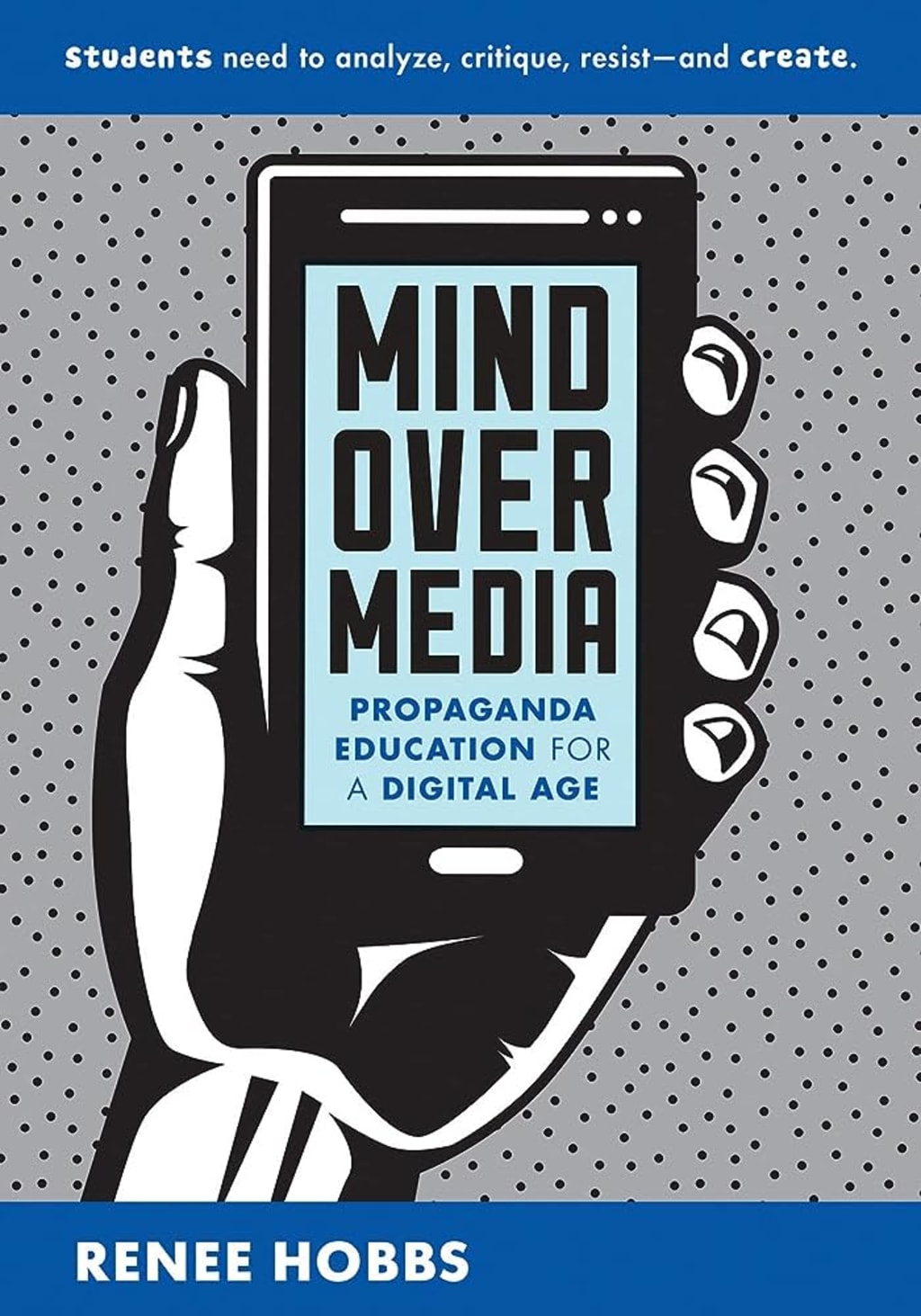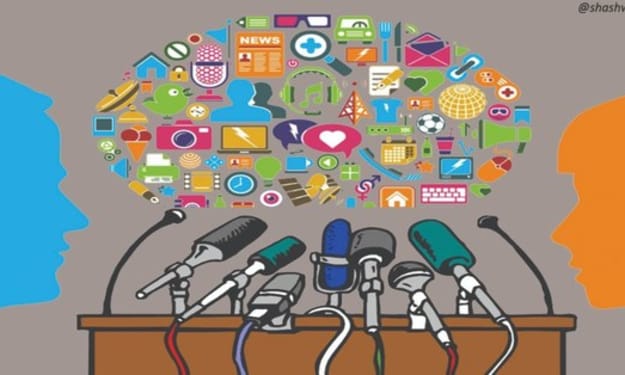"Unveiling the Truth: Is the Education System a Beacon of Enlightenment or a Tool for Political Agenda?"
"Unveiling the Dichotomy: Navigating Education's Quest for Enlightenment Amidst Political Motives"

The education system stands as a foundational element within societies, holding the enticing potential to lead us toward understanding and advancement. Yet, behind its noble appearance, a complex dynamic comes into view – a push and pull between its role in nurturing young minds with knowledge, analytical thinking, and values, and the lurking possibility of manipulation for political motives. This intricate interplay sparks a pivotal question: Can education be a radiant force, empowering individuals to shape a brighter future, or does it possess the capacity to be wielded subtly, perpetuating existing power structures?
Our exploration delves into this intricate relationship, navigating the multifaceted landscape of the education system's purpose. We investigate its potential to offer enlightenment or to inadvertently become a conduit for specific political narratives. By analyzing historical contexts and contemporary instances, we unearth instances where education has been used as both a means of fostering independent thought and as a tool for reinforcing prevailing political agendas.
This inquiry extends beyond the confines of mere academia, resonating with the heart of societal evolution and equitable progress. As we tread this nuanced path, we grapple with the broader implications of the education system's dual nature, seeking to unveil its layers and shed light on its potential to either illuminate minds or inadvertently uphold existing power dynamics.
The Light of Life: Empowering Minds and Fostering Progress
In the tapestry of human progress, the education system stands as a weaver of destinies, threading together the hopes, aspirations, and intellect of generations. It holds within its grasp the potential to sculpt enlightened minds, fostering critical thinking, nurturing empathy, and kindling the flame of knowledge. Yet, beneath the veneer of this noble pursuit lies a complex interplay between education's altruistic aims and its susceptibility to political agendas.
Education, at its zenith, serves as a radiant beacon of enlightenment, guiding individuals through the labyrinth of ideas and ideologies. It illuminates the human experience, empowering learners to engage with diverse perspectives and seek truth amid the cacophony of information. A well-crafted curriculum nurtures intellectual curiosity, chiseling minds into capable vessels of reason and creativity. It has the power to dismantle walls of Ignorance, enabling societies to march toward progress fueled by collective wisdom.
However, as the pages of history attest, education can also be harnessed as a potent instrument for political manipulation. Beneath the guise of learning, some systems have sought to etch partisan narratives into impressionable minds, perpetuating existing power dynamics and stifling the symphony of dissent. The classroom, intended as a sanctuary for open inquiry, can unwittingly become a battleground where ideas are weaponized and divergent voices are silenced.
In the pages that follow, we embark on an exploration of this dichotomy within the education system – a dichotomy that presents both the promise of enlightenment and the peril of propaganda. As we navigate this intellectual terrain, we unveil the complexities that underscore education's role in shaping societies, shedding light on its potential to either illuminate the path of progress or cast shadows of manipulation.
The Darker Side: Education as a Tool of Political Propaganda
Conversely, some education systems have been used as instruments of political control and manipulation. In such cases, the curriculum may be tailored to promote a specific political ideology or advance the interests of the ruling elite. This can lead to the suppression of critical thinking, the reinforcement of existing hierarchies, and the marginalization of alternative viewpoints.
A narrow and selective presentation of history and information within the education system can contribute to a skewed understanding of the world. By omitting certain perspectives or events, the education system can perpetuate a distorted narrative that supports the prevailing political regime. This reinforces the notion that education is not solely about enlightening minds but also about maintaining power structures.
Throughout history, the world has been majorly divided into two major parts(Authoritarian regimes, and Socialist/Democratic Regimes). And their education system has been more or less designed, mainly to hideout their propaganda and empower racial superiority.
No side has tried escaping from this inception till the modern world too. The democratic side always focused on emphasizing the failure of communism in practicality and the limitation to the success of a socialist economic system where production is limited to the national supply. Moreover, democrats also played the blame game with dictators like Hitler and Mussolini, etc for starting the war and making inhuman war crimes. But in reality, the in both world wars, wars were triggered by some series of events and MAIN causes for it. The word MAIN stands for Military, Alliance, Imperialism, and Nationalism.
Yet, In reality, history hides many things that limit your thinking ability. For example in Germany, From 1913 to 1924, the banking system was crashed several times by the Royal Families of Jews in Palestine and limited Germany’s growth towards an economic superpower in Europe because the Jews were supporting the Western European Imperialist Nations( England, France, Portugal, etc.). Yet till today, the democrats are developing their education system more to keep up the propaganda rather than improving it.
The blame game can be played on both sides because non of the sides were actually following the ideology they were promoting to be a superpower.
During the Hitler regime, it is also believed that the education system of Nazi Germany was extensively manipulated to indoctrinate young minds with the ideals of Aryan supremacy, anti-Semitism, and loyalty to the Nazi Party. Textbooks were rewritten to glorify Nazi achievements and subjects like biology were distorted to promote pseudo-scientific concepts like "racial purity." Another example is North Korea's Juche Philosophy: The education system in North Korea heavily emphasizes the Juche philosophy, which revolves around self-reliance and loyalty to the ruling Kim family. Students are taught to revere the leaders and their ideology, with distorted historical narratives and heavy censorship.
We see no sides are pushing toward a better and peaceful world but toward a destructive and Corrupted one. The overwhelming growth of AI and Nuclear weapons is also pointing towards a catastrophic nature and devastating geopolitics. The feeling of superiority and being more powerful than others have anticipated the fate of many countries hundreds of years before them. And yet, that’s not surprising that the full-fledged plan of the Nazi War Plan was designed hundreds of years ago so perfectly for every possible front.
Likewise, Military commanders of England, France, the USA, and the Soviet Union had also their own strategy for the war. Besides, the present-day conflicts in Korean Peninsula, the Arab-Israel Conflict, the Jews and Arabs Conflict, etc are also all pre-designed by the British, European powers at that time, and by the almighty USA. Hence, The education system has been used more as a brainwashing machine rather than for the enlightenment of thoughts
Striking a Balance: Nurturing Enlightened Citizens
The delicate equilibrium between education's noble purpose and its potential for political manipulation becomes especially evident when examining how certain economists have been promoted to serve specific political agendas. This real-life phenomenon exemplifies the challenge of striking a balance between education as a vehicle for enlightenment and its susceptibility to ideological exploitation.
One compelling instance occurred within the context of a country undergoing economic reforms. The government, keen on advancing a particular economic ideology, strategically elevated economists who espoused its views within the national education system. These economists' theories were then incorporated into curricula, shaping the minds of students to perceive this specific economic approach as absolute truth. This orchestration effectively tilted the education system towards promoting a singular economic narrative while sidelining alternative theories and perspectives.
The consequences of this manipulation were profound. Students, devoid of exposure to diverse economic schools of thought, were subtly molded into proponents of a particular ideology, hindering their ability to critically analyze policies or engage in well-rounded economic discourse. As a result, the education system, meant to foster enlightened citizens capable of independent thought, became a conduit for propagating a one-sided viewpoint that favored the ruling political regime.
This incident underscores the vital need to safeguard education from undue ideological influence. Striking a balance requires nurturing an environment where multiple perspectives are presented, allowing students to engage critically with ideas, challenge assumptions, and form their conclusions. By prioritizing a well-rounded curriculum that includes a spectrum of economic theories, educators can empower students to become truly enlightened citizens who are equipped to navigate the complexities of the modern world.
In conclusion, the case of economists being elevated to fuel political agendas highlights the intricate dance between education's potential for enlightenment and its susceptibility to manipulation. It underscores the urgency of cultivating a robust educational environment that fosters critical thinking, pluralism, and the capacity to discern between genuine knowledge and partisan narratives. Only by doing so can we hope to fulfill education's true potential as a beacon of enlightenment while guarding against its co-optation for political gain.
Conclusion
The education system is a double-edged sword, capable of both nurturing enlightened minds and perpetuating political agendas. While challenges exist in preventing the manipulation of education for political gain, the potential for positive change through education is immense. By prioritizing a balanced, inclusive, and well-rounded approach to education, societies can harness its power to create informed, critical, and socially conscious citizens who contribute meaningfully to a better world. The onus lies on educators, policymakers, and society as a whole to ensure that education remains a beacon of enlightenment, guiding individuals toward a brighter and more equitable future.
About the Creator
Satyam Magar
Delving into geopolitics, history, and untangling truth from propaganda. Uncover the past's resonance in our present and distinguish fact from fiction. Let's navigate the complex landscape together.






Comments
There are no comments for this story
Be the first to respond and start the conversation.